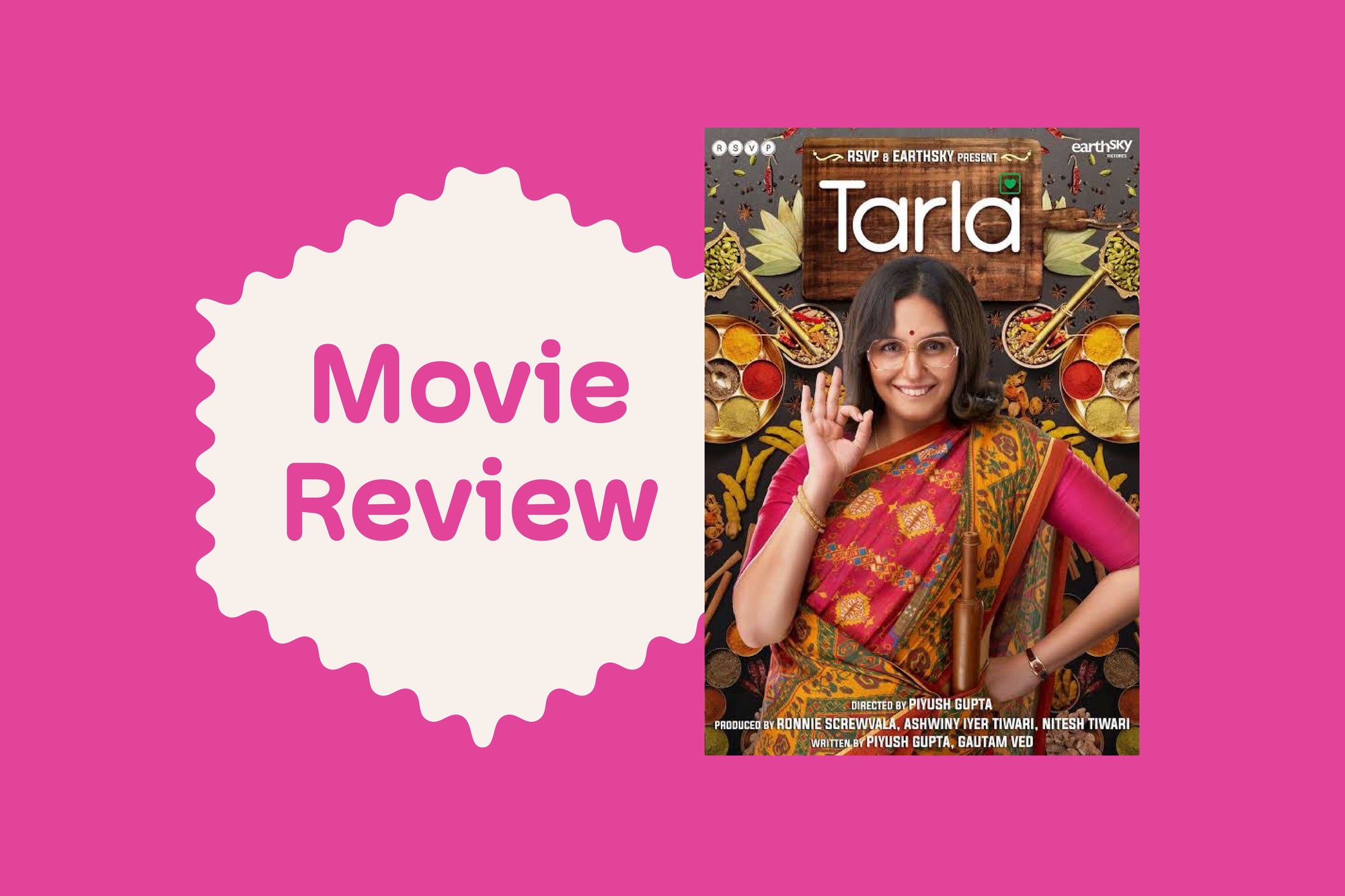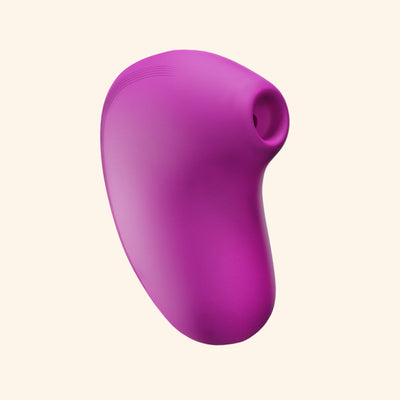Your cart is currently empty

‘Tarla Dalal’ - say this name to your mother, and you’ll see a video wave of nostalgia wash over her face, like she just stumbled upon a cherished old memory. Tarla was a familiar name in every Indian household for the longest time. Everyone knew of her tadka style on-screen, but what was her off-screen style? What went behind the scenes? What are the off-work aspects of her life that remained unknown to us?
'Tarla' is a biopic that unveils the extraordinary life of the late culinary wizard, Tarla Dalal (played by Huma Qureshi). It’s the tale of a young girl, with a fierce “mujhe kuch toh karna hai” attitude. It’s the story of her marriage, her family, her work, her everyday nuances and everything that made her what she is.

With the passing of time, she juggles the responsibilities of being a mom to her three bundles of joy while keeping the household in check. While peering out of the kitchen window, she ponders. And then, something happens. The daughter of her neighbor, whom Tarla had taught to make perfectly ‘gol’ rotis, gets married. It's like a light bulb moment for Tarla. She finally finds what she had been searching for all along.
Now, I gotta spill the beans upfront: the movie does sprinkle some extra spice here and there to jazz things up, but hey, that's showbiz, right? The heart of the movie still stays in the right place. A housewife and a mother, in the 60s, ruling the nation by conquering their taste buds, one dish at a time. So, what are the bits we love? What are the bits that could’ve been better? Let’s get into this!
Tarla’s Passion and Hardwork
Tarla catches her husband savoring some juicy non-vegetarian, and boy, does that tick her off! She decides to take the matter in her hands (quite literally, mind you), and vows to change the game. Everytime she experiments with a new recipe, you can practically feel the exhilaration coursing through her veins. When her cooking classes hit a roadblock, she hunts for another medium or way to make her name. When Nalin (her husband, played by Sharib Hashimi) rates a dish an 8/10, she takes it as a challenge. Tarla makes the same dish everyday, until she reaches her desired goal, 10/10. She never settled for the second best. She served dedication with a spicy dash of passion.
Also Read: Decoding Seeing Like a Feminist by Nivedita Menon
Minor Conflicts
The movie takes us through her struggles of wanting to ‘become’ something in an Indian Society, not with dramatic clashes or grand showdowns - but with minor life nuances. It's a delightful ride through the ups and downs of a woman determined to carve her path in Indian society. And guess what? The magic lies in those seemingly small but significant challenges that make us all nod in agreement!
Let’s think about it - an all men run group sit around, and make decisions on whether Tarla can continue her classes in a residential society. And let's not forget the classic mom-moments! Tarla's mom gets all worked up because she can't find a few household items or if Tarla is away when the little one falls sick. This is the beauty of her journey - no need for earth-shattering conflicts or knock downs, but small conflicts, every single day.
In a world where gender norms and societal expectations try to hold her back, Tarla fights on, tackling multiple microaggressions day in and day out. It's a tale that resonates with every woman who's ever had to fight to make her own name
Lines That Move You
There are multiple dialogues that tug at my heartstrings, but let me tell you about the one that steals the show - A scene between Tarla and the director of her TV Show. Tarla, due to family friction, decides to hang her apron and quit the show. She reasons it by saying, “I am doing what any other woman in the world would do for her family.”
Then, comes the mic-drop moment. The director, not to let that slide, fires back with a line that stunned me for a second. "No, you are doing what no man in the world would do”.
This line is one of those incredible gems that stick with you long after the credits roll. Tarla's decision to prioritize her family over her career is something many women can relate to. But the director's response shines an extremely bright light on the double standards that women face. It's a powerful reminder of the unique challenges and sacrifices women make in a world where men often don't have to.
This statement is pure gold. It's the kind of moment that hits you right in the gut and leaves you with a whole new thought about the world women work in.
A Male Feminist in the 60s
When we look at Nalin as a feminist in the 60s, he’s done quite an impressive job.
Tarla spills her dreams and aspirations to Nalin during one of their early meet-ups. Now, call me skeptical, but I wasn't entirely convinced when he promised to support her with all his heart. I mean, come on, we've all heard those empty promises before, right? But boy, did Nalin surprise me! He didn't just talk the talk; he walked the walk. He not only supported his wife throughout, but stood up against people (ahem, other men) for Tarla’s career.

Another powerful scene is when Nalin is being interviewed about the gap in his otherwise impressive resume. He explained,a bit hesitant, of how the gap period was for helping his wife to set her career. This is laughed at, and becomes a reason to not have been considered ‘man enough’. This is a glaring example of how patriarchy does not harm just women - it hurts men too, it always did.
Now, don't get me wrong, Nalin is no saint. He's got his flaws, and one major one is how he laid on the guilt trip about Tarla not being there enough for their kids. It's like he excelled in so many aspects of feminism, but couldn't break free from the societal stereotype of what motherhood should be.
But here's the twist - the last scene is an absolute stunner! By now, we've grown to adore Nalin for the unwavering support he offered. We're willing to overlook his "expecting an award" moment, considering the time and context. But what's fantastic is that Nalin realizes his entitlement and acknowledges it. It is a great reminder that feminism is not necessarily something you are, it’s something you slowly keep evolving into.
Also Read: Dissecting The Beauty Myth by Naomi Wolf
Is this just another, ‘glorifying women in the kitchen’ plot?
Short quick answer - No, it isn’t!
One - this story actually takes place in the 1960s, an era when women were boxed into this notion that their place was only in the kitchen and looking after the kids. Going out to work or pursuing any career? Nah, that was totally out of the question, and people would raise an eyebrow just thinking about it. Women sitting in front of computers doing ‘seemingly important jobs’ was beyond imagination. But here comes Tarla, breaking the norms like a boss! Cooking became her way of making a statement.
Two - When we look at it, Tarla did not choose cooking as a profession only because she wouldn’t be able to make it big in any other field. It came out of severe drive and passion. It came out of an actual belief that vegetarian cuisine can be just as delectable, just as finger-licking good.
Three - Women were expected to whip up delicious meals at home, but when it came to the professional cooking world, it was an all-boys club. So, for Tarla to step into this realm was like one giant leap of courage! She fights patriarchy while holding the same patriarchally given utensils in her hand. This scene is now changing, one tadka at a time, but we cannot, once again, forget the time and context - an era where ‘cooking’ is your responsibility for the meals of men in the house, not something you can enjoy.
Four - You might also remember the time when she didn't cook for her family - it had become impossible with her schedules. A househelp is hired for the same. Or the time when her mom asks “aachar kidhar hai?” and she’s unsure. These scenes show how she refuses to take cooking as a household responsibility. She flips the script, defies norms with her spatula and cooks up a storm.
Food as a Medium to Overthrow Patriarchy
One important thing that I really missed in the movie is more mouthwatering visuals of food. Well, while one reason is definitely the fact that this is chef’s biopic, there’s more to it.
I think that this movie is a refreshing take on how food (or cooking) can overthrow patriarchy. It plays a starring role of rebellion. You see, cooking has traditionally been shown in a ‘gender duty’ and ‘homemaking responsibilities’ light. Food, quite literally, is screaming - "Hey, we're not playing by those old rules anymore. We're gonna use what's been used against us to empower us!" Now, that's the kind of flavor-packed message we all need in our lives.
So here's my take : I would've loved a few more tantalizing shots of that glorious batata musallam. And hey, let's not forget about showcasing a few more interesting dishes too. Just imagine the close-ups of people's faces as they dig into her scrumptious masterpieces!
This would have been a deliciously strong addition, both from a general audience perspective and a feminist standpoint. Serve more empowerment on a platter, please!
How does Tarla actually feel?
While we move on from incident to incident, one question clings me - What does Tarla really feel about it all? I mean, seriously, I want to know what's going on inside her head? How does she feel when the friction between her and Nalin starts crackling? What thoughts race through her mind when she knows she has to walk away?
And oh, those moments when her books skyrocket to bestseller status—how does that make her feel? And what about cooking itself? I want to know how she sees it as an art, not just a 'rasoi' responsibility. What are her belief systems? Does she hate non vegetarianism because of religious reasons, conditioning or genuine concern for animal rights?
I, personally, craved a deeper connection with Tarla as a person. Sure, the flow of events was there, but I wished for more importance placed on Tarla's feelings and inner world.There’s focus on the inspirational bit of her story, but we forget the complexities and nuances that made Tarla, Tarla. Understanding her heart would have added that extra sprinkle of magic to an already incredible story.
All in all, I most definitely think it's a great Sunday afternoon feminist watch - that will leave you with warmth, and rooting so strongly for an Indian housewife in the 60s! (Also, maybe a little hungry!)
---
About the Author










